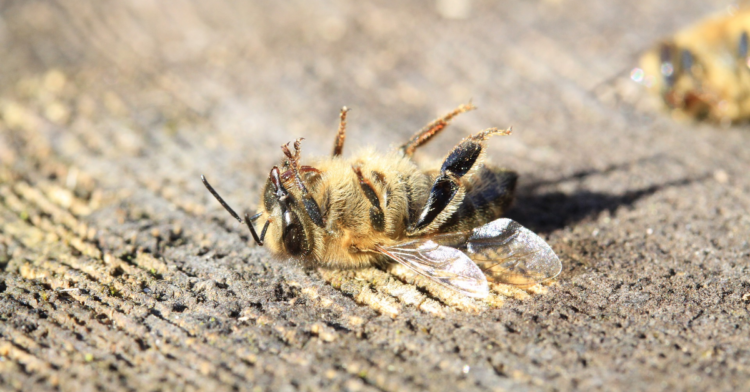We’ve all heard about how honeybee colonies are dying off at an alarming rate and how much their deaths could affect humanity’s ability to grow food in the future.
Many countries have taken steps to ban the most obvious culprit: pesticides. Of course, it hasn’t completely solved the problem, but it’s certainly helping. Which is why a new report out of Brazil is so upsetting.
The article is from the government of Santa Catarina, where 50 million bees were found dead between December 2018 and February 2019.

It was one of four states that reported massive bee colony destruction. Mato Grosso do Sul lost 45 million bees, Sao Paulo lost 7 million, but Rio Grande do Sul lost a whopping 400 million .
In this case researchers are pretty sure that pesticides are to blame.
Particularly those that use the chemicals neonicotinoids and fipronil, which have been banned in the EU due to their linked to Colony Collapse Disorder (CCD).
But while countries around the world have worked to ban them, Brazil’s government has been approving a record number of new pesticides for use.
Since January 2019, 290 new pesticides have been approved for sale in the Brazilian markets.

And it’s not just the bees. According to Bloomberg , in a recent food safety test, watchdog group Anvisa found 20% of food to be contaminated with pesticide residues higher than permitted levels.
Meanwhile, the country’s health ministry recorded 15,018 incidents of pesticide-related illnesses in 2018 among workers in the fields being sprayed.
So what can be done?

Sadly, it’s clear that Brazil’s government plans to continue making more and more pesticides available, as well as loosening restrictions on their use.
But the Brazilian people have begun to take note and many have begun to push for more organic offerings, with some stores increasing organic stock by as much as 85% in 2019.
Hopefully, they’ll begin to pressure their government to reverse course before it’s too late.
h/t: Bloomberg

















































